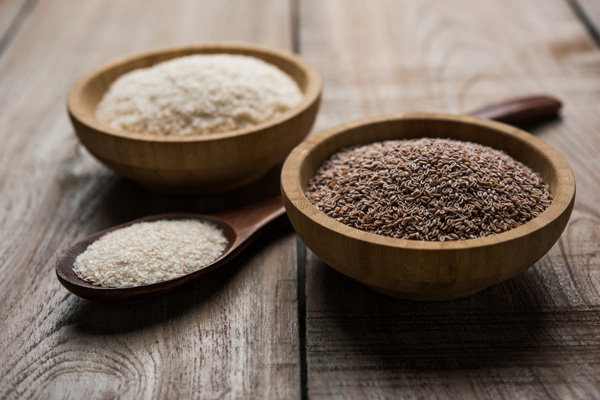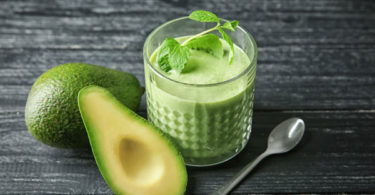-The blond psyllium, also called Indian Plantain or Ispaghul, is a plant native to India or Iran about 15 cm high, adorned with small white flowers grouped in ears. It is the small seeds of the plant that are harvested. They are oval and light in color.

By StockImageFactory.com
/ shutterstock.com
The seed, with its envelope, the integument, is able to treat the problems of constipation. The seed is rich in fiber, lipids, iridoid, and protein, which restore the normal functioning of the colon. The integument contains plant mucilages, specifically polysaccharide macromolecules, which absorb water in large quantities. They swell in the intestine, forming a gel that increases the volume of the stool, and facilitates the evacuation smoothly.
![]() -Psyllium has been used since ancient times against constipation. It is a treatment that is both gentle and effective. Its laxative effect does not cause irritation of the mucous membrane. It is also an excellent regulator of intestinal functions.
-Psyllium has been used since ancient times against constipation. It is a treatment that is both gentle and effective. Its laxative effect does not cause irritation of the mucous membrane. It is also an excellent regulator of intestinal functions.
Psyllium has a powerful function of intestinal and digestive regulation, whatever the problem: it is indicated in case of constipation, but also in case of diarrhea or hyperacidity gastric. Its effect is also peacemaker in case of the irritable colon.
![]() –In case of constipation, psyllium is taken before or during meals, with a dosage of a teaspoon of seeds, accompanied by a large glass of water. The seeds must have been left to soak for several hours in warm water. As a powder, it can also be easily mixed with a fruit juice, a compote, or a vegetable soup. Highly digestible, psyllium is naturally gluten-free and lactose-free.
–In case of constipation, psyllium is taken before or during meals, with a dosage of a teaspoon of seeds, accompanied by a large glass of water. The seeds must have been left to soak for several hours in warm water. As a powder, it can also be easily mixed with a fruit juice, a compote, or a vegetable soup. Highly digestible, psyllium is naturally gluten-free and lactose-free.
It should not be given to pregnant or breastfeeding women, children, or people with intestinal or esophageal stenosis, or gastrointestinal obstruction.
[adinserter block=”7″]
[adinserter block=”9″]







Leave a Comment